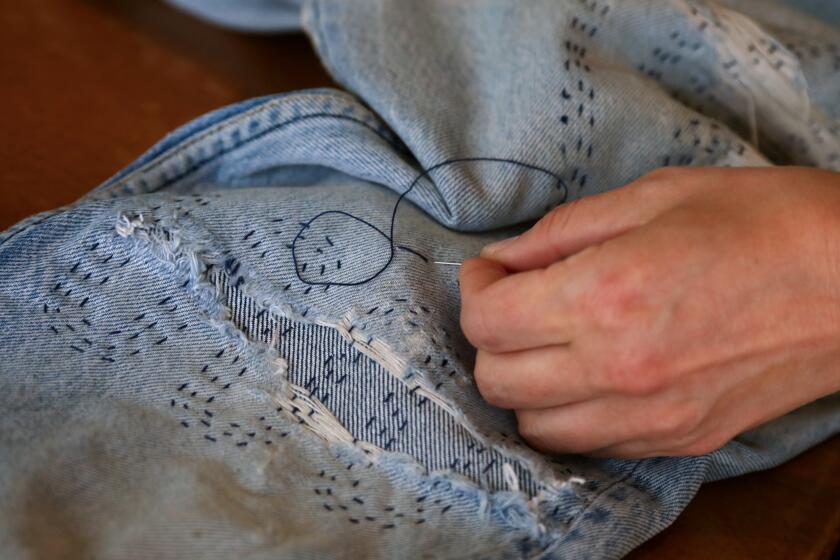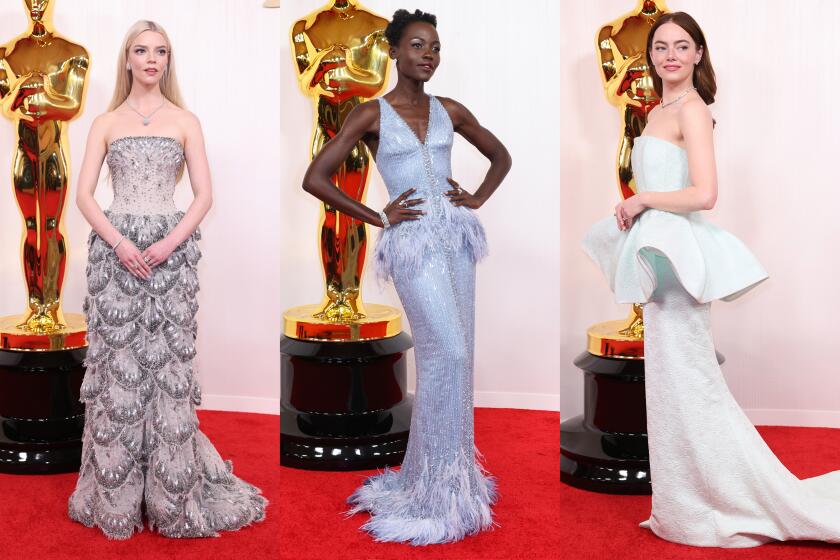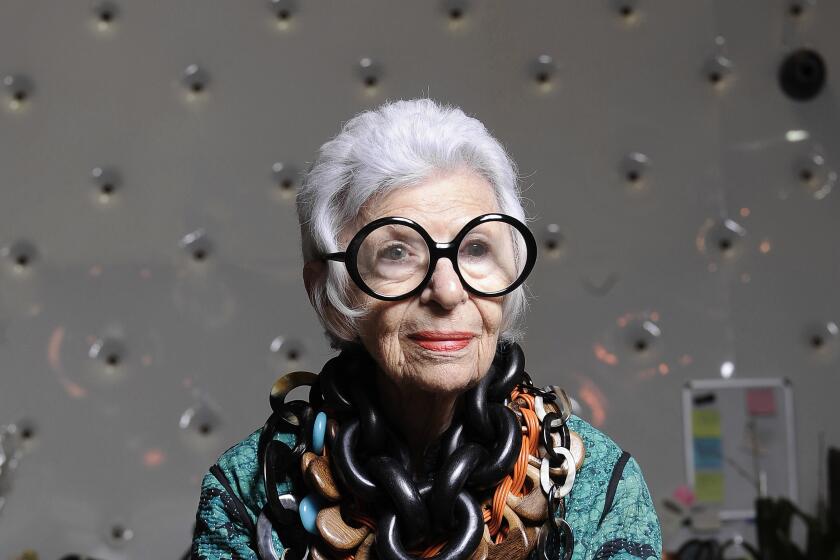Marchesa MIA: Harvey Weinstein fallout led to the 2018 Golden Globes trend you didn’t see
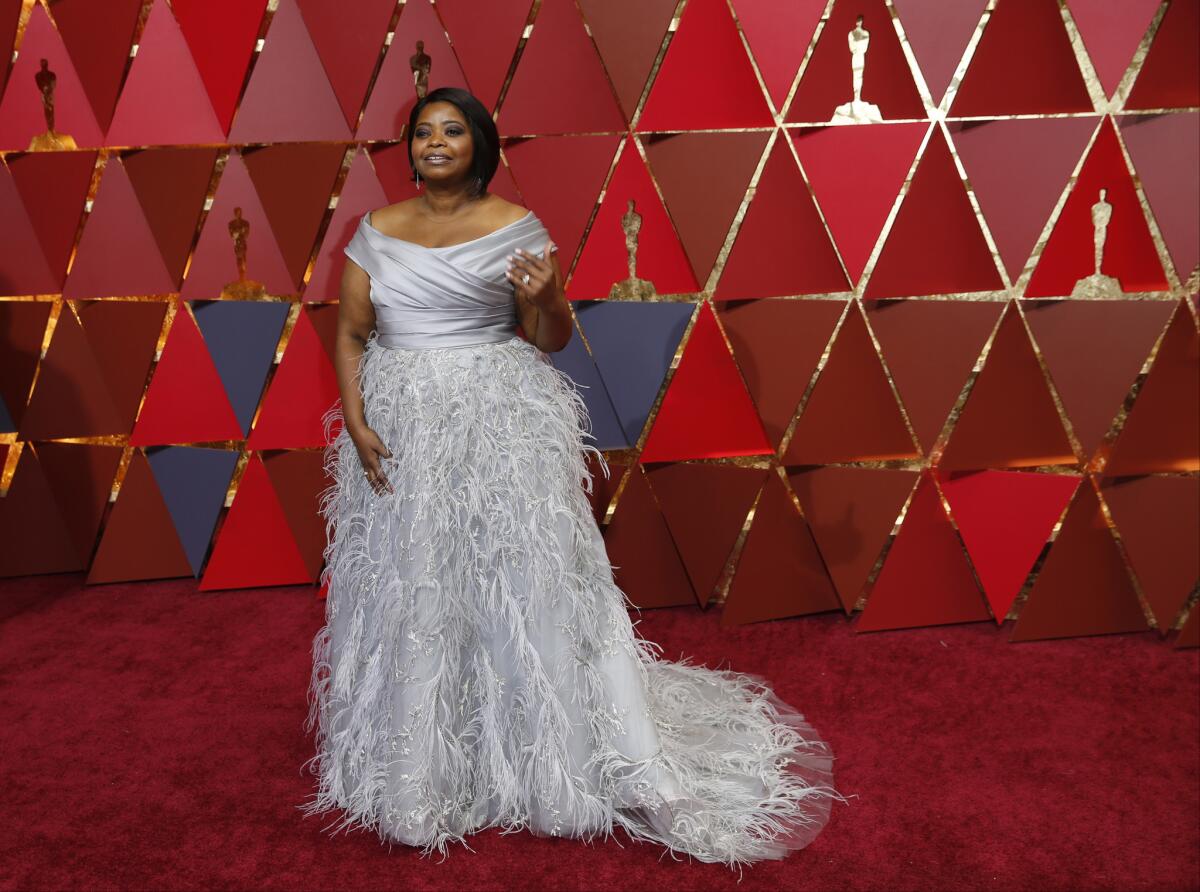
The 75th Golden Globes was a big night for symbolic, statement-making style on the red carpet, thanks to a parade of powerfully dressed women in an inky sea of black dresses, accessorized with Time’s Up lapel pins and accompanied by female activists.
And given the highly publicized effort to highlight the issues of gender inequality, sexual assault and harassment, it was nice to see a range of A-listers decked out in labels helmed by female designers, including “The Crown’s” Claire Foy in a black, double-breasted Stella McCartney suit, “The Handmaid’s Tale’s” Samira Wiley in a black A-line Romona Keveža Collection gown, Elisabeth Moss and Natalie Portman in Dior (which tapped Maria Grazia Chiuri as its first female artistic director in 2016) and Sam Rockwell, Diane Kruger and Gary Oldman in Prada.
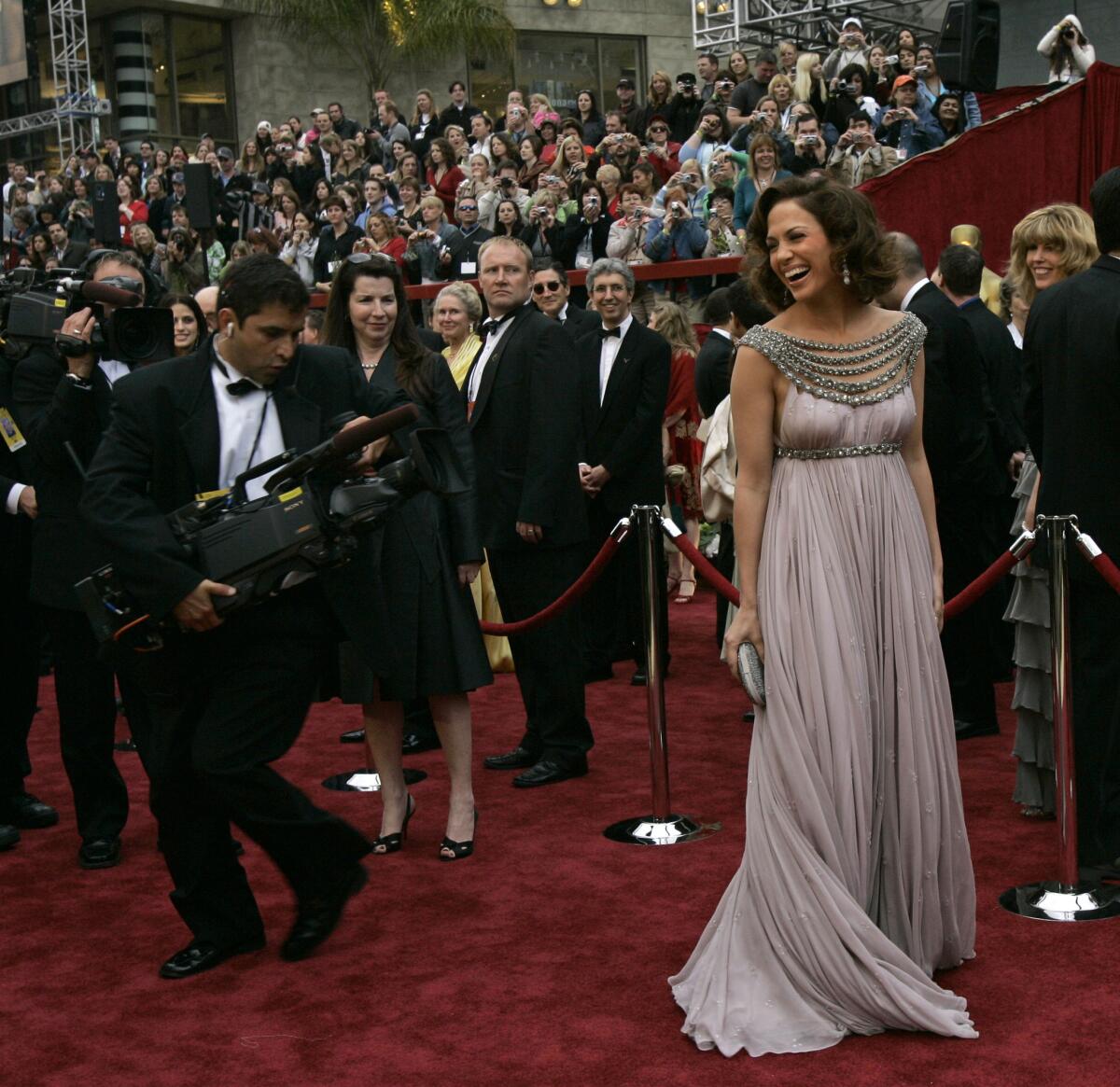
But there was one female-led label that was conspicuously absent at the first awards show of the year. Marchesa, the brand started by Keren Craig and Georgina Chapman in 2004, has been making trips down awards-show red carpets since its founding. Sienna Miller at the 2007 Golden Globes, Jennifer Lopez for the 2007 Globes and 2007 Oscars, Sandra Bullock at the 2010 Oscars and Octavia Spencer at last year’s Academy Awards are just a few examples.
The 75th Golden Globes and Hollywood's new era of power dressing »
But Sunday night, none of the major stars wore Marchesa. Co-founder Chapman, you may recall, has been married to scandal-plagued producer Harvey Weinstein since 2007 and, shortly after his sexual harassment scandal broke in October, announced that she was leaving him.
That connection alone — fairy or unfairly — would have been enough to dampen enthusiasm for Marchesa on this year’s Golden Globes red carpet. Fierce Weinstein critic Rose McGowan, who had been silenced by the producer through a non-disclosure agreement, appeared to make the fashion brand even more of a non-starter when she criticized the black-dress blackout in a (now-deleted) mid-December Tweet that ended with the line: “I despise your hypocrisy. Maybe you should all wear Marchesa.”
Although McGowan took to Twitter a few days later to apologize for drawing the label into the discussion over Weinstein’s behavior (“The Marchesa line was beneath me,” she wrote in part, “and I’m sorry for that”), it seemed to further dim the prospect that the label would find favor among women hoping to highlight the issue of sexual harassment. On the other hand, the argument could be made that wearing Marchesa might actually have been the best way possible to highlight the issue.
Full coverage: The 2018 Golden Globes »
To be fair, we can’t say with certainty that the label was 100% MIA from Sunday night’s red carpet, only that our eagle-eyed fashion team failed to identify a single Marchesa dress coming across the carpet, and an inquiry emailed to the brand’s PR firm of record has not yet been answered.
Likewise, without additional information, it’d be hard to say exactly why (beyond being linked to the sordid Weinstein scandal in general) no one wore Marchesa to the 75th Golden Globes. (There is a remote — but real — chance that someone might have wanted to borrow a Marchesa dress for the Golden Globes but the label declined to provide one in support of the evening’s message.)
If the Case of the Missing Marchesas has its roots in McGowan’s social-media storm it hardly seems fair to Chapman and Craig. But if it flows from the fact that Weinstein reportedly used his influence as a producer to get the gowns on the red carpet, then it actually seems more than appropriate. Ditto if the reason was to avoid detracting from the evening’s overall message.
Either way, like John Galliano’s high-profile departure from Dior (he was dismissed as creative director in 2011 after a public anti-Semitic rant), it underscores the fragile eco-system of fashion — where clothes can bind together creator and wearer in a way that’s hard to separate without destroying both.
For more musings on all things fashion and style, follow me at @ARTschorn.
ALSO
Why this year's Golden Globes black-dress blackout is good for fashion
This is why Hollywood Foreign Press Assn. President Meher Tatna didn't wear black


